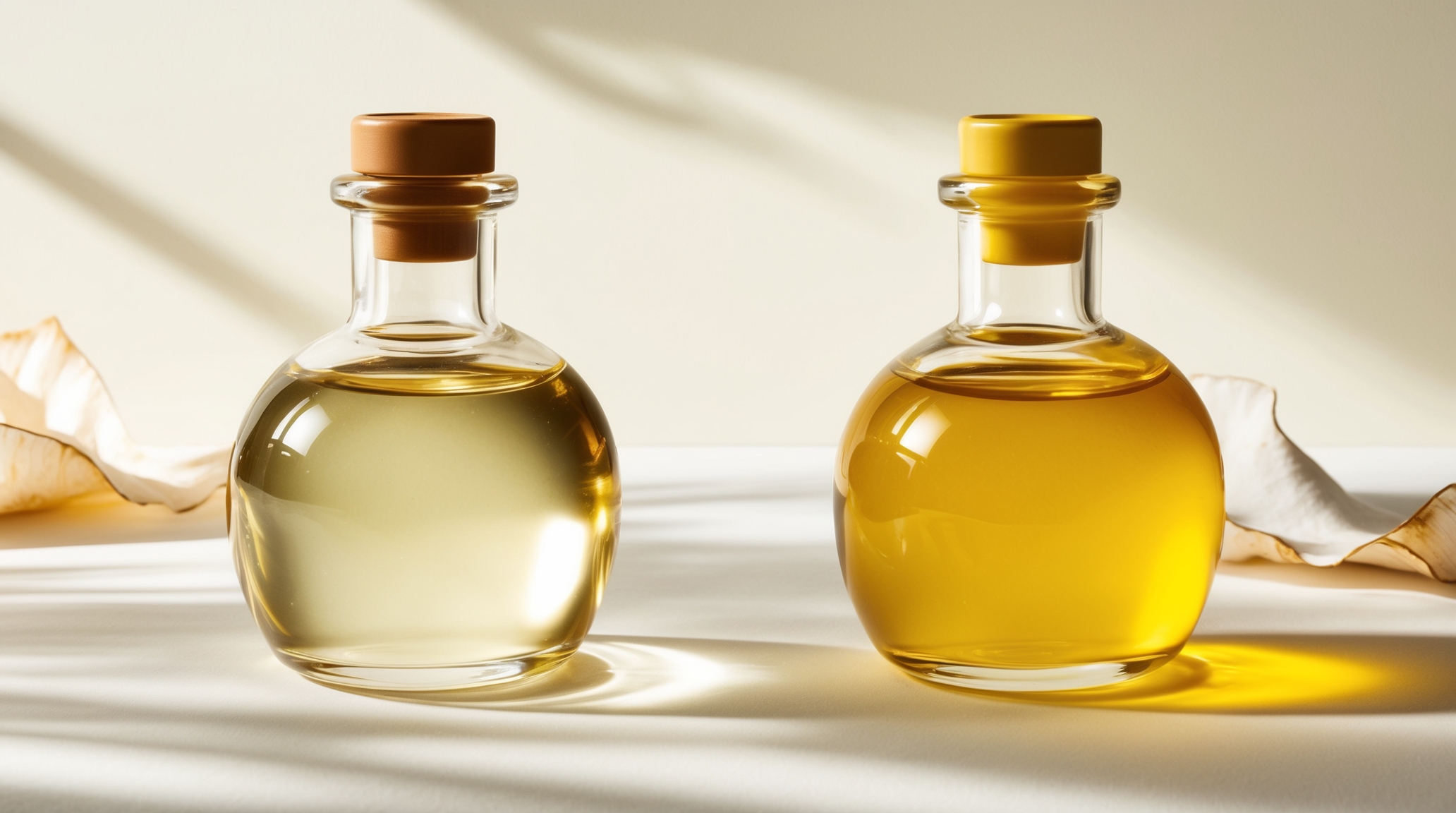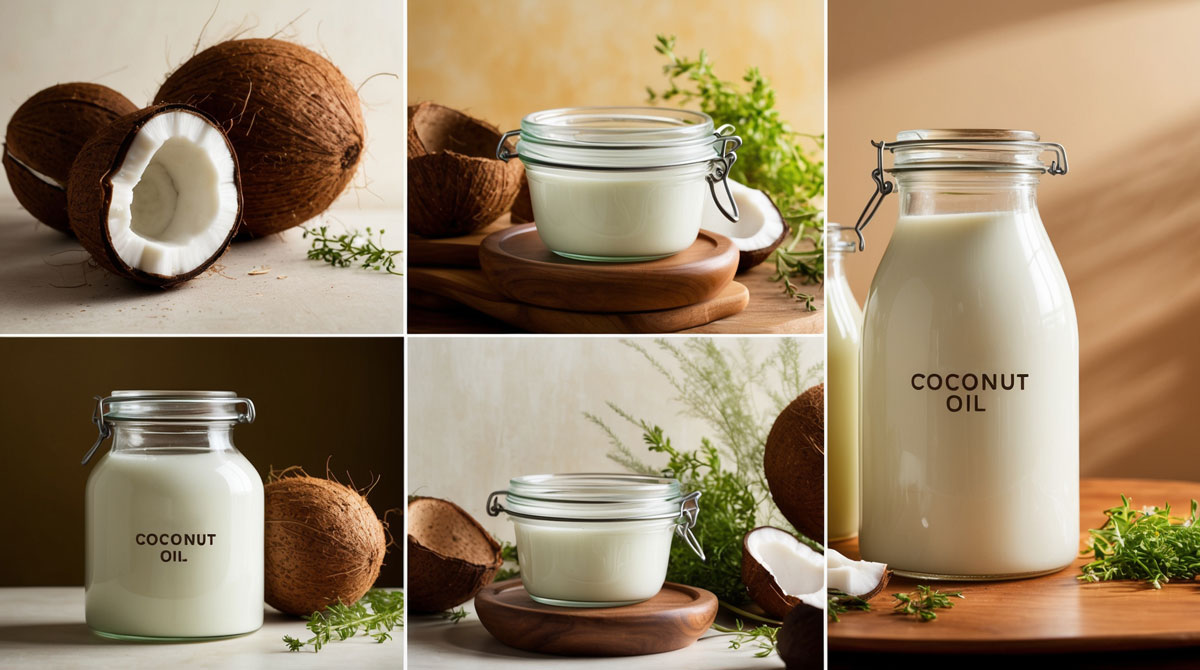Coconut oil has become a staple in many households due to its myriad uses in cooking, skincare, and alternative health remedies. However, like any natural product, it has a shelf life that, if not monitored, can turn this versatile oil into a potential health hazard. Knowing how to identify spoiled coconut oil and understanding the best storage practices can help you make the most of every jar.
How to determine if your coconut oil has expired
To check if your coconut oil has gone bad, use your senses. Here are some key signs to look for:
- Color: Fresh coconut oil is typically clear or has a slight golden hue when liquid and solid white when solid. Yellowing, grayish tint, or cloudiness are signs of spoilage.
- Smell: Fresh coconut oil has a neutral or mild coconut scent. An off-putting, sour, or stale odor indicates rancidity.
- Texture: Good coconut oil feels smooth. If it feels gritty or has an unusual consistency, it’s likely spoiled. Small balls or graininess may indicate spoilage.
- Taste: A small dab should be flavorless or have a slight coconut taste. Any rancid or bitter flavor indicates spoilage.
- Container condition: Check for leaks, rust, or damages as exposure to air and moisture can accelerate spoilage.
| Indicators | What to Look For |
|---|---|
| Color | Clear or slight yellow when fresh |
| Texture | Smooth and creamy |
| Scent | Subtle coconut aroma |
| Taste | Smooth, nutty flavor |
Understanding the shelf life of coconut oil
Coconut oil is known for its long shelf life, but it does degrade over time. Here’s what you need to know:
- Unopened: Coconut oil can stay fresh for up to two years if stored in a cool, dark place.
- Opened: Once opened, it typically lasts about a year due to air exposure.
| Condition | Shelf Life |
|---|---|
| Unopened | Up to 2 years |
| Opened | Up to 1 year |
Proper storage techniques to extend coconut oil freshness
Maintaining the quality and freshness of coconut oil requires specific storage methods:
- Keep it cool: Store in a cool pantry or refrigerator.
- Avoid light: Use airtight, opaque containers to minimize light exposure.
- Minimize exposure: Always use clean utensils to scoop the oil, reducing contamination risks.
| Storage Location | Shelf Life |
| Pantry (cool, dark place) | Up to 2 years |
| Refrigerator | 2+ years |
Refrigeration is a viable option, especially in warmer climates. Refrigerated coconut oil will harden but can be softened to room temperature before use. Always use clean utensils to prevent contamination.
Practical tips for storing coconut oil
Here are some practical tips and tricks for everyday use and storage of coconut oil:
- Use Clean Utensils: Always use a clean spoon or spatula to scoop out coconut oil to prevent contamination.
- Label Your Jars: Mark the date when you open a new jar to keep track of its shelf life.
Health risks and safety concerns of using spoiled coconut oil
Using rancid coconut oil can pose various health risks:
- Digestive problems: Consuming spoiled oil can cause stomach cramps, diarrhea, and nausea.
- Skin reactions: Applying rancid oil can lead to allergic reactions, irritation, or breakouts.
- Decreased effectiveness: Spoiled oil loses its efficacy in treating skin and hair issues.
- Harmful bacteria: Rancid oil can harbor bacteria, leading to foodborne illnesses.
- Oxidation: Increased free radicals from rancid oil can accelerate aging and increase the risk of chronic diseases.
| Safety Concern | Details |
|---|---|
| Digestive Issues | Stomach cramps, diarrhea, nausea |
| Skin Reactions | Allergic reactions, irritation, breakouts |
| Free Radicals | Increased risk of chronic diseases |
| Bacterial Growth | Potential for foodborne illnesses |
By paying attention to the quality and storage conditions of your coconut oil, you can ensure it remains fresh and safe to use. Store the oil in a cool, dark place, monitor its appearance and smell, and always check the expiration date. Properly cared for, coconut oil can retain its benefits and flavor for a considerable time.
FAQs
Can bacteria grow in coconut oil?
While pure coconut oil is naturally antibacterial, contamination can lead to bacterial growth, especially if exposed to moisture or impurities.
Can spoiled coconut oil make you sick?
Yes, consuming spoiled coconut oil can cause digestive issues such as stomach cramps, diarrhea, and nausea.
Why did my coconut oil melt?
Coconut oil melts at around 76°F (24°C). If your environment is warmer than this, the oil will naturally become liquid.
How do you clean rancid coconut oil?
It is not recommended to clean rancid coconut oil for reuse. It is better to dispose of it and replace it with fresh oil.
What happens if you leave coconut oil in too long?
Leaving coconut oil exposed for too long can lead to oxidation and spoilage, resulting in rancidity.
Why does my hair smell bad after using coconut oil?
If your coconut oil is spoiled, it can leave an unpleasant odor in your hair. Always use fresh coconut oil for the best results.
What is the brown stuff in coconut oil?
Brown particles in coconut oil can indicate spoilage or contamination. It is best to discard any coconut oil that has brown stuff in it.
What is rancid coconut oil used for?
Rancid coconut oil is not recommended for consumption or topical use due to its potential health risks. It is best to dispose of it properly.
How do you know when a coconut goes bad?
A bad coconut will have a sour smell, mold, or a compromised shell. The water inside may also taste off.
What does coconut oil do for the human body?
Coconut oil can be beneficial for skin and hair health, and it is used in cooking for its potential health benefits. It contains medium-chain fatty acids, which are believed to have various health benefits.
Can coconut oil be used as lube?
Coconut oil is sometimes used as a natural lubricant, but it is important to note that it is not compatible with latex condoms.
Is coconut oil good for your skin?
Yes, coconut oil is known for its moisturizing properties and is often used in skincare.
Does gargling coconut oil whiten teeth?
Oil pulling with coconut oil is believed by some to help whiten teeth and improve oral health, though scientific evidence is limited.
Why is some coconut oil yellow?
Yellowing in coconut oil can indicate oxidation or spoilage. Fresh coconut oil should be clear or have a slight golden hue.
How long can you reuse coconut oil?
Coconut oil should not be reused after it has been used for cooking, as it can degrade and become unhealthy.
Can Candida survive in coconut oil?
Coconut oil has antifungal properties and is sometimes used as a natural remedy against Candida infections.
Does coconut oil go bad if not refrigerated?
Coconut oil does not necessarily need refrigeration but should be stored in a cool, dark place to prevent spoilage.
What to do with old coconut oil?
Old coconut oil that has gone rancid should be disposed of properly. It is not safe for consumption or topical use.
Is coconut oil bad for foot fungus?
Coconut oil is often used as a natural remedy for foot fungus due to its antifungal properties. However, it should be fresh and not rancid.




